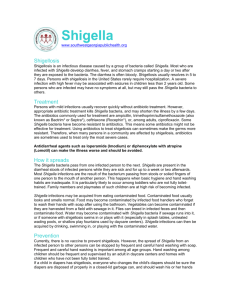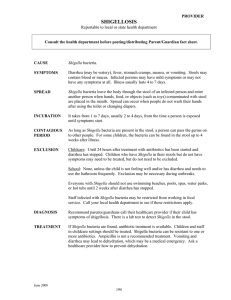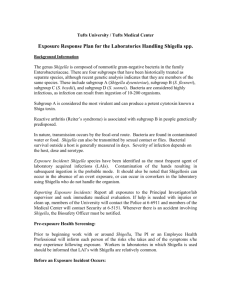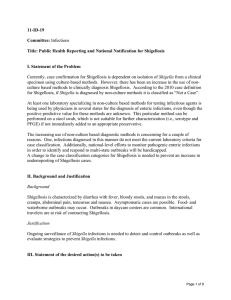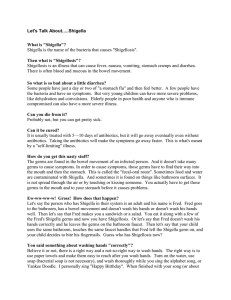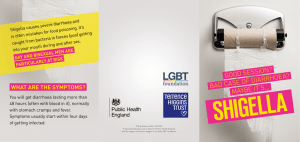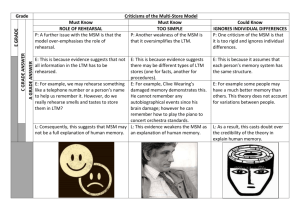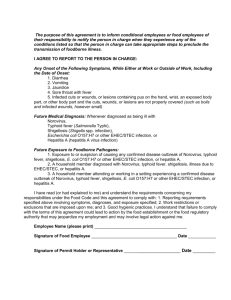Infectious Disease Epidemiology, Prevention and Control Division P.O. Box 64975
advertisement
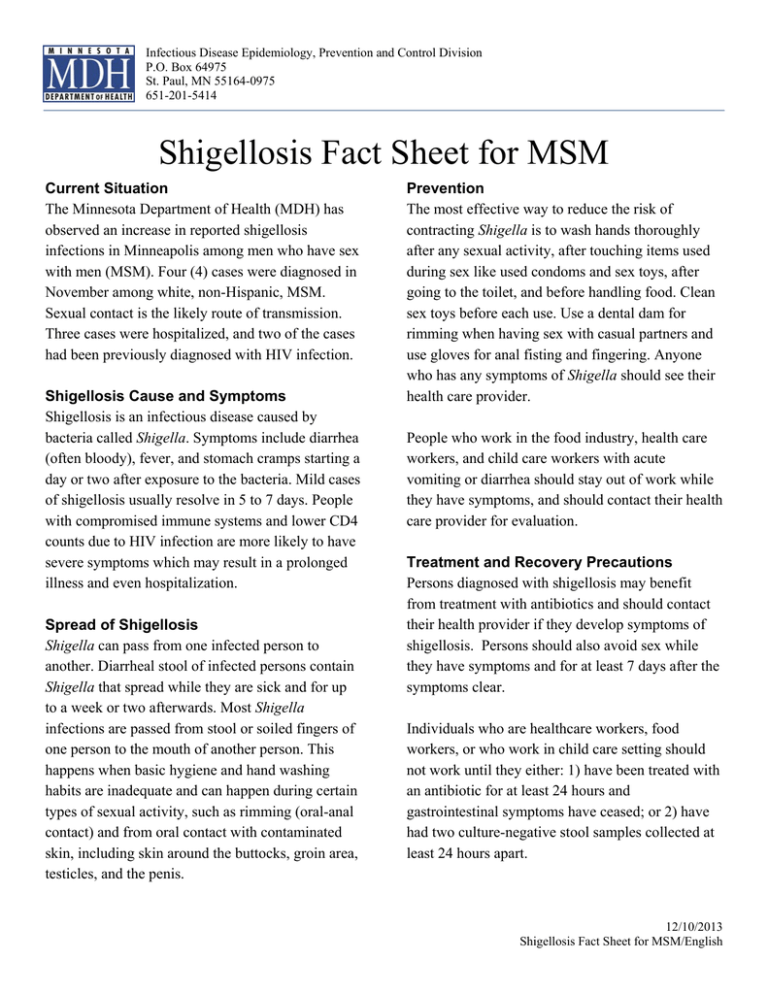
Infectious Disease Epidemiology, Prevention and Control Division P.O. Box 64975 St. Paul, MN 55164-0975 651-201-5414 Shigellosis Fact Sheet for MSM Current Situation The Minnesota Department of Health (MDH) has observed an increase in reported shigellosis infections in Minneapolis among men who have sex with men (MSM). Four (4) cases were diagnosed in November among white, non-Hispanic, MSM. Sexual contact is the likely route of transmission. Three cases were hospitalized, and two of the cases had been previously diagnosed with HIV infection. Shigellosis Cause and Symptoms Shigellosis is an infectious disease caused by bacteria called Shigella. Symptoms include diarrhea (often bloody), fever, and stomach cramps starting a day or two after exposure to the bacteria. Mild cases of shigellosis usually resolve in 5 to 7 days. People with compromised immune systems and lower CD4 counts due to HIV infection are more likely to have severe symptoms which may result in a prolonged illness and even hospitalization. Spread of Shigellosis Shigella can pass from one infected person to another. Diarrheal stool of infected persons contain Shigella that spread while they are sick and for up to a week or two afterwards. Most Shigella infections are passed from stool or soiled fingers of one person to the mouth of another person. This happens when basic hygiene and hand washing habits are inadequate and can happen during certain types of sexual activity, such as rimming (oral-anal contact) and from oral contact with contaminated skin, including skin around the buttocks, groin area, testicles, and the penis. Prevention The most effective way to reduce the risk of contracting Shigella is to wash hands thoroughly after any sexual activity, after touching items used during sex like used condoms and sex toys, after going to the toilet, and before handling food. Clean sex toys before each use. Use a dental dam for rimming when having sex with casual partners and use gloves for anal fisting and fingering. Anyone who has any symptoms of Shigella should see their health care provider. People who work in the food industry, health care workers, and child care workers with acute vomiting or diarrhea should stay out of work while they have symptoms, and should contact their health care provider for evaluation. Treatment and Recovery Precautions Persons diagnosed with shigellosis may benefit from treatment with antibiotics and should contact their health provider if they develop symptoms of shigellosis. Persons should also avoid sex while they have symptoms and for at least 7 days after the symptoms clear. Individuals who are healthcare workers, food workers, or who work in child care setting should not work until they either: 1) have been treated with an antibiotic for at least 24 hours and gastrointestinal symptoms have ceased; or 2) have had two culture-negative stool samples collected at least 24 hours apart. 12/10/2013 Shigellosis Fact Sheet for MSM/English Shigellosis Factsheet for MSM – Page 2 Messages to Grantee Clients Alert all MSM and MSM HIV-positive clients of a recent increase in shigellosis. Advise any client with diarrhea, fever, and stomach cramps to seek medical care. Inform clients that Shigella can be spread through rimming (oral-anal contact) and from oral contact with contaminated skin, including skin in the groin area, the testicles, and the penis. Clients should wash hands thoroughly after any sexual activity, after going to the toilet, and before handling food. Use a dental dam for rimming when having sex with casual partners and use latex gloves for anal fisting and fingering. For those who work in the food industry, health care, and child care settings, stay out of work if gastrointestinal symptoms are present and seek medical care. If infected, clients should inform their sexual partners about their potential exposure. For More Information Questions on the prevention of shigellosis can be directed to the MDH Acute Disease Investigation and Control Section at 651-201-5414. 12/10/2013 Shigellosis Fact Sheet for MSM/English
